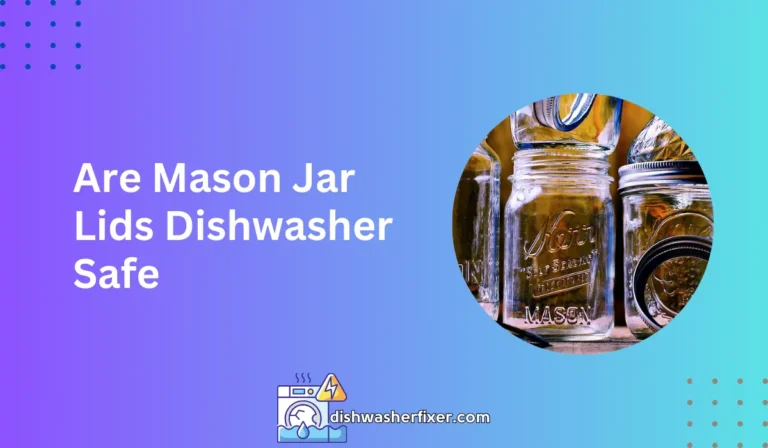How Long Do Dishwashers Last With Hard Water? Lifespan Tips!
Dishwashers typically last 7-12 years, but hard water can reduce this lifespan by causing mineral buildup and increased wear on components. Regular maintenance, such as using water softeners and cleaning with vinegar, can help mitigate these effects.
Impact of Hard Water on Dishwasher Lifespan

Understanding Hard Water and Its Characteristics
Hard water contains high levels of minerals, such as calcium and magnesium. These minerals are what give hard water its characteristic taste and can cause issues when used in appliances.
When water is heated, these minerals can form scale, a hard, chalky deposit that can affect household appliances, including dishwashers.
Scale Buildup in Pipes and Components
Over time, the scale from hard water can build up inside the dishwasher’s pipes and components. This buildup can lead to clogs and reduce the efficiency of the appliance, forcing it to work harder to pump water and drain properly.
Effect on Heating Elements
The heating elements in dishwashers are crucial for drying dishes and heating water to the temperature needed to clean effectively.
When coated with mineral scale, these elements must use more energy to reach the desired temperatures, leading to increased wear and potentially shorter lifespans.
Impact on Detergent Effectiveness
Detergents do not dissolve or clean as well in hard water. This means that dishes may not come out as clean, and more detergent may be required to achieve the desired results, increasing the cost and potentially leaving residue on dishes and inside the dishwasher.
Comparing Lifespan: Hard Water vs. Soft Water
Dishwashers typically last between 7 to 12 years, but when operating with hard water, their lifespan may be at the lower end of this range.
In contrast, dishwashers using soft water can often reach or exceed the higher end, as they do not have to contend with the damaging effects of scale buildup.
Maintenance Tips for Extending Dishwasher Life in Hard Water Areas

The Importance of Regular Maintenance
Regular maintenance is key to extending the life of a dishwasher, especially in areas with hard water. Scheduling routine check-ups and cleaning can help prevent the accumulation of scale and maintain the dishwasher’s efficiency.
Routine Cleaning and Descaling Recommendations
It’s recommended to clean and descale your dishwasher regularly. Using natural cleaners like vinegar can help dissolve mineral deposits and keep your dishwasher running smoothly. A monthly cycle with vinegar can work wonders in hard water areas.
Best Practices for Loading and Detergent Use
Load the dishwasher correctly to ensure water circulates freely. Also, use detergents formulated for hard water to reduce the amount needed and prevent residue buildup.
Water Softening Solutions for Dishwashers
For those with hard water, using a dishwasher with an inbuilt softener system can be a game-changer.
Additionally, external water softening systems for the whole house can protect not only the dishwasher but all appliances from scale buildup. Using rinse aids and water softening agents in every wash cycle can also help prevent mineral deposits.
Signs Your Dishwasher Is Affected by Hard Water and When to Replace It

Identifying Hard Water Damage Signs
Signs that your dishwasher is suffering from hard water damage include dishes that are not completely clean, white streaks or spots from limescale deposits, and strange noises during operation.
If these issues are persistent, it might be time to consider maintenance or replacement.
Repair vs. Replacement: Evaluating the Cost
When facing repairs for a dishwasher affected by hard water, weigh the cost of repairs against the price of a new unit. If repairs are frequent or costly, investing in a new dishwasher may be the more economical choice in the long run.
Choosing a New Dishwasher for Hard Water Areas
When selecting a new dishwasher for an area with hard water, look for models with built-in water softeners or ones that are specifically designed to handle hard water conditions. This can save money and extend the life of the appliance.
Tips for Installation and Initial Setup
During installation, ensure that the dishwasher is set up to handle hard water by adjusting settings for water hardness if available.
This adjustment can help the dishwasher use the correct amount of detergent and salt, preventing unnecessary damage from the start.
FAQs About Dishwasher Lifespan with Hard Water
How long do dishwashers last when used with hard water?
The lifespan of a dishwasher with hard water can be reduced, often lasting less than the typical 7-12 years due to mineral buildup and increased wear on components.
What impact does hard water have on a dishwasher’s components?
Hard water can cause mineral buildup and increased wear on dishwasher components, potentially leading to more frequent repairs or earlier replacement.
Can regular maintenance extend the life of a dishwasher using hard water?
Yes, regular maintenance such as using water softeners and cleaning with vinegar can help mitigate the effects of hard water and extend the dishwasher’s lifespan.
How often should I clean my dishwasher if I have hard water?
It is recommended to clean your dishwasher monthly to prevent mineral buildup from hard water.
Are water softeners effective in protecting dishwashers from hard water damage?
Yes, water softeners can be very effective in reducing mineral buildup in dishwashers caused by hard water, thus protecting its components.
Final Thoughts
Dishwashers have a typical lifespan of 7-12 years; however, hard water can shorten this due to mineral deposits and extra strain on machine parts.
Employing regular maintenance practices like using water softeners and vinegar for cleaning can extend the life of a dishwasher even in areas with hard water.





